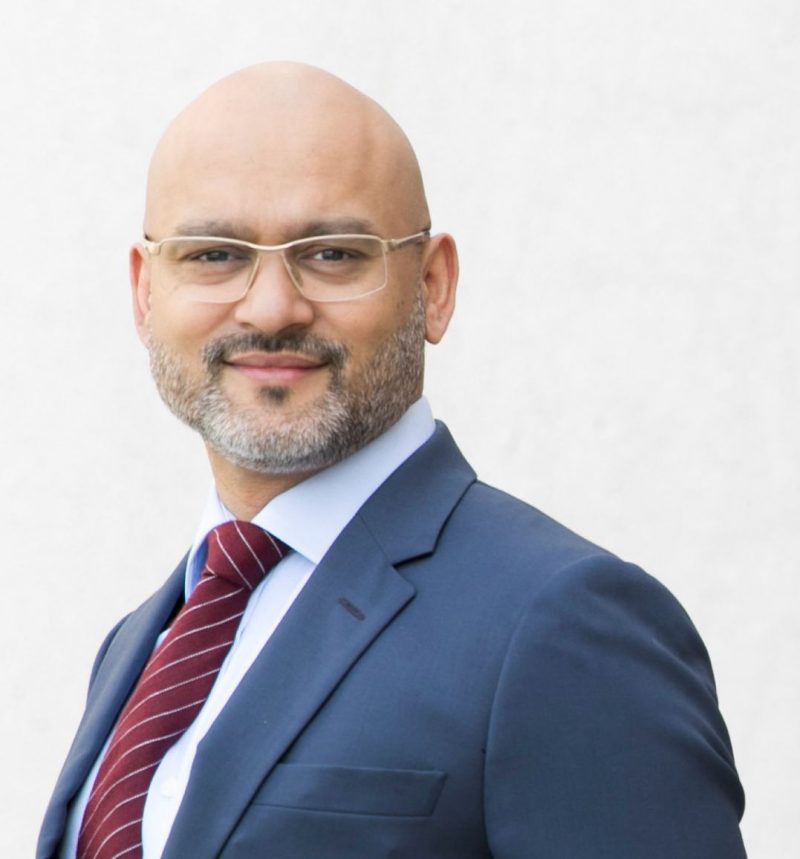A Promising Catalyst for Growth
Speaker for WIEF-SEACO Foundation Roundtable, Khalid Howladar, answers a few questions on how Islamic finance can further catalyse growth during this technological age and if it’s successful as an alternative financial system.
Khalid Howladar has been in the Islamic finance sector for 14 years out of the 25 years that he has been in the finance industry. He’s the managing director and founder of Acreditus in Dubai, which is a boutique advisory practice created to serve the risk, rating and Islamic finance needs of the Gulf and Islamic credit markets, and also the chief strategy officer of Blossom Finance, an innovative blockchain sukuk platform for social impact investing. A passionate speaker, Khalid has addressed audiences at the World Bank, IMF, ECB and IIF among many others, and will be speaking at the WIEF-SEACO Foundation Roundtable in Dhaka on 29 October 2019, during the session on Islamic Finance: Catalysing Growth.
Prior to the event, he answers a few questions to pre-empt the topic:
To date, is Islamic finance a successful alternative financial system?
I do not believe Islamic finance is yet successful as an ‘alternative’ financial system, especially as most the 3 trillion-dollar industry typically replicates conventional banking. The industry needs to migrate to a more investment versus lending business models to sincerely fulfil its potential as an alternative.
What is the overview of Islamic finance for the next five years?
I think Islamic banking will continue to grow at a steady rate in core markets such as the Gulf countries and Malaysia, with more rapid growth in markets like Turkey and Indonesia. Uptake in newer markets like Bangladesh will remain slow without proactive policy support. We’ll also see slow growth in non-Muslim markets like the UK and Canada although the cultural challenges are increasing. I think the real change will come in the area of Islamic fintech. The innovative use of technology can allow it the sector to fulfil its promise. This is where I see the most potential.
Has the internationalisation of Islamic finance had positive impact on its development and growth?
Absolutely. Sukuk has gone global with over USD500 billion of issuance from key emerging markets (EM) sovereigns attracting both conventional and Islamic investors. The growing pool of Islamic liquidity is also attracting more international borrowers to the sector.
What role does Islamic finance play in promoting regional trade and investments?
Islamic finance at its core is meant to drive real economic activity, however, lack of differentiation means that in substance it typically replicates the ills of debt-based consumption and financialisation of the economy. If it differentiates more and focuses more on real economic trade finance, SME and entrepreneur investment, then it can add more value. The global financial crisis has exposed the banking systems as fuelling endless credit bubbles with a false perception of growth. It also furthers the global inequality trends that are proving to be a real destabilising force in global politics.
Are there good examples of regional initiatives that have enhanced financial sector connectivity?
I’m not really aware of regional initiatives, but multilateral institutions like the Basel Committee on Banking Supervision (BCBS), Institute for International Finance (IIF) and Islamic Financial Services Board (IFSB) have done much to coordinate at the policy and risk level. For connectivity it’s really technology that has been the game changer.
How has technology influenced the development of Islamic finance and how can technology further enhance the application of Islamic finance?
Same as conventional finance, any bank that lags in technology will be obsolete within a decade, abandoned by its customers. Islamic finance is more about asset-backed and equity type investments or financing. These types of products are typically too expensive or complex for mass market retail. Technology will reduce implementation costs and allow Islamic finance to fulfil its non-interest-based promise. Furthermore, virtual banks of all forms – Islamic and conventional – are definitely a part of the future financial landscape. Most next generation customers don’t need branches, only mobile access.
What are the current challenges or issues faced by those implementing Islamic finance?
I feel the biggest challenge is one of differentiation. When Islamic finance copies conventional finance, it merely replicates the strengths and weaknesses of the existing system with additional complexity. There’s no real value created, only costs. Replication also creates confusion in the mind of customers and with the more discerning customer, [it will be] cynicism – I once had an Uber driver in the UK tell me that Islamic finance was an excuse to charge Muslims more for conventional banking services.

Lastly, what can participants of the Roundtable in Dhaka, expect from you as a speaker?
In an industry full of challenging conflicts, [they can expect] an open, honest, unconflicted opinion. I have worked in conventional and Islamic capital markets for 25 years. Unlike most, I have worked both bottom-up and reviewed tens of thousands of pages of sukuk documentation as well as top down, formulating policy as Moody’s first ever Global Head of Islamic finance. This gives me unique perspectives.
WIEF-SEACO Foundation Roundtable focuses on the topic of Regional Collaboration: Transforming Economies and will be held in Dhaka, Bangladesh, on 29 October 2019. To register as a participant, visit this link.
Read other event speakers’ interviews here and here.
Read about regional collaborations here.
